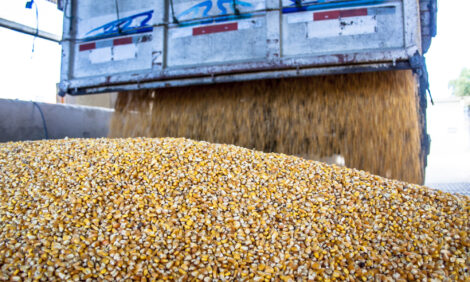



Supply Management Survives as Trans-Pacific Partnership Concluded
GLOBAL - Canadian poultry meat, egg and dairy producers will be breathing a sigh of relief today after it was announced that their supply management system will mostly be protected in the Trans-Pacific Partnership free trade deal.Trade ministers of twelve countries around the Pacific announced on Monday that they had finally come to an agreement on the landmark deal, after five years of negotiations.
The agreement liberalises trade and investment between the twelve countries, which make up nearly 40 per cent of the world economy.
The text of the agreement is not yet available, whilst negotiators complete the finishing touches such as translations and legal consultations. Reports suggest that this could take around one month.
However, a summary of the agreement says: "On agricultural products, the Parties will eliminate or reduce tariffs and other restrictive policies, which will increase agricultural trade in the region, and enhance food security."
Despite this, a statement from the Canadian trade department said: "The government successfully protected the three pillars of Canada’s supply management system, which will remain intact."
The supply management system limits imports of poultry meat, eggs and dairy products into Canada as well as limiting domestic production, and had been seen as a key barrier to the agreement's conclusion.
Pork Associations Welcome Deal
The US National Pork Producers Council expressed their confidence that the TPP agreement will benefit all sectors of the US economy and will provide enormous new market opportunities for high-quality American pork products.
“NPPC played an active role throughout the five-plus years of negotiations,” said association President Dr Ron Prestage, “providing US negotiators with key information on barriers we face in the 11 other TPP countries and offering guidance on outcomes that would ensure substantial new market access benefits for US pork in those markets.”
Iowa State University economist Dermot Hayes, who said a final TPP agreement could be “the most important commercial opportunity ever for US pork producers,” estimated that a good outcome for pork in the trade pact could increase US pork exports over time exponentially and help create more than 10,000 US jobs tied to those exports. Last year, the US pork industry shipped about $4.5 billion of products to the 11 TPP nations.
The agreement was also welcomed by the Canadian Pork Coucil (CPC).
Rick Bergmann, Chair of the CPC, stated that the agreement will put Canada in a strong negotiating position and secures Canada's ability to export pork to Japan on fully competitive terms with the US and other TPP pork-exporting countries.
"We learned only too well in the case of South Korea how being the only major exporter without a trade agreement results in very rapid loss of market presence", said Mr Bergmann.
"We saw our exports to that country fall by close to 75 per cent within just two years following the implementation of the US free trade agreement with South Korea."
Mr Bergmann added: "The TPP agreement provides important export growth potential which will encourage Canada's 7,000 pork farmers to invest in their production facilities and to create new job opportunities for Canadians both on and off the farm."
Lack of currency manipulation rules questioned
Meanwhile, the American National Farmers Union (NFU) expressed its disappointment in the lack of limits placed on currency manipulation. The organisation has previously said that trade partners can reduce currency values, decreasing the relative cost of their exports to other countries in trade deals, and undermining trade agreements.
“Just as we feared, the Trans-Pacific Partnership (TPP) is moving forward without any meaningful language addressing one of the chief tools used by our trade competitors to ensure the playing field is never fair: currency manipulation," said NFU President Roger Johnson.
“Because of this, NFU will continue to vigorously oppose this agreement and urge Congress to reject this deal as well. Gains that may have been made in the agreement to ensure fairness and equity in trade for America’s family farmers and ranchers are likely to be lost due to currency manipulation."






